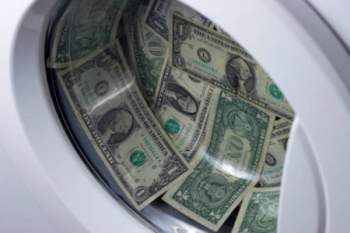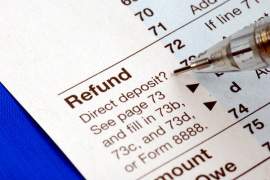
Illinois Tax

FULL List to Illinois Tax Forms
Individual Income Tax Forms
Form IL-1040 Individual Income Tax Return
Form IL-1040-X Amended Individual Income Tax Return
Corporate Income Tax Forms
Form IL-1120 Corporation Income and Replacement Tax Return
Form IL-1120-X Amended Corporation Income and Replacement Tax Return
Sales Tax Forms
Form PST-1-X Amended Prepaid Sales Tax Return
Form ST-1-X Amended Sales and Use Tax and E911 Surcharge Return
Form PST-1 Prepaid Sales Tax Return
Property Tax Forms
Form PTAX-203 NR Real Estate Transfer Tax Payment Document
Form IL-1040 Individual Income Tax Return
Form Schedule F Gains from Sales or Exchanges of Property
There are a number of taxes applicable to the state of Illinois, which includes a state sales tax, income tax, and other taxes.
Illinois state sales tax
The state sales tax is different depending on the locality where the sale takes place. There is a 5% state sales tax, with a minimum 1% city and .25% county sales tax. Some cities and counties impose higher taxes that can reach the maximum sales tax of 11.5%.
Illinois personal income tax
- Illinois uses a flat tax rate for calculating income tax for all residents of the state. The flat tax rate is 5%, however it will be decrease over the next 15 years back to 3%.
Illinois property taxes
- Fund local governments but approved by state
- Property tax rates vary depending on the county and type of the property
- The lowest residential property taxes are in Monroe county, with a nominal tax rate of 5.91%
- The highest residential property taxes are in Bond county, with a nominal tax rate of 9.16%
- Commercial property is taxed at the same rate in most counties, however some counties vary the effective tax rate of commercial properties.
Illinois special excise taxes
Taxes assessed on vehicles, alcohol, tobacco, gasoline and are in addition to federal excise taxes.
- Funds health programs and other related activities
- $0.98 tax on every pack of cigarettes
- $8.55 tax per gallon of spirits
- $1.39 tax per gallon of wine
- $0.23 tax per gallon of beer
Illinois inheritance tax
The Illinois estate and inheritance tax has just recently been re-entered into law after a hiatus in 2010. The state inheritance tax requires a lower threshold the federal tax, which exempts and estates from taxation until they are over $5 Million in total value. The Illinois inheritance tax will only exempt estate valued under $2 Million, but does allow estate planners to use a Qualified Terminable Interest Property Trust to defer some of that amount. The law is set to expire after 2012, so it is uncertain what the rate will be for years after.
Illinois payroll taxes
State Disability Insurance – None
State Unemployment Insurance – 0.70% - 8.4%
Local Taxes – Chicago requires $4 per month per employee.
Exemptions
Certain exemptions for
- Limited Military personnel and veteran exemptions
- Persons age 65 and older
- Disabled and blind resident tax credits
- Homeowner tax credits
- Qualified child tax credits
Taxable income
Gross income is defined as all income from whatever source derived, including but not limited to:
- Wages
- Salaries
- Commissions
- Stock Gains
- Dividends
- Royalties income
- Rental income
- Business income
- Inheritance
- Pensions
- Annuities
- Partnership/shareholder income
- Gain from sale of property
Corporate income tax
Illinois has a corporate tax rate of 9.5%, which will decrease to 7.3% in 2025.
Misc
Illinois has recently dramatically increased the flat income tax rate from 3% to 5% for the 2011 tax year. It has also dramatically increased the corporate tax rate from 7% to 9.5%. These increases are set to be temporary, as they will decrease a small amount for the next 15 years, until 2025.
Illinois requires a number of taxes for other activities, including utilities taxes, gambling and bingo taxes, aircraft use tax, hotel taxes, watercraft use taxes, automobile taxes, and a number of other licenses and registration fees required throughout the state.
Within the state of Illinois, amid the plethora of tax forms in connection to the filing of income taxes, there also remains Illinois tax related to sales in contrast to the recognition given to non-profit organizations as well as "charitable games." Illinois tax, that which is imposed upon a retailer's receipts stemming from the sale of "tangible property" for both application as well as consumption," is what sales tax entails. Such Illinois tax falls upon 3 areas of specification according to the state.
These include "qualifying food/drugs/medical supplies," "vehicles," and another for all "other general merchandise." In order for food to fall under this category, it must have been created for instant consumption, examples of which would be certain products you may find at supermarkets. "Vehicles" include that of the motorized type, such as those that assisted in relocating a business to the state of Illinois.
"Other merchandise, then, encompasses other tangible property, such as sodas and photo processing fees. The base rates include 1% for qualifying foods and 6.25% for both vehicles and "other" general merchandise. This is subject to variation, however, depending upon "location specific" rates. These local taxes may be imposed by specified municipalities, for instance.
Now that we have covered Illinois tax related to sales, we must venture towards areas in which Illinois tax law may leave exempt. One such category is that which non-profit organizations fall into.
In order to apply for an "Exempt (E) number, the organization must convey a letter of request as well as the following pertinent documents: "articles of incorporation if applicable, a constitution if unincorporated, by-laws, an IRS letter acknowledging the organization's exempt status, most recent financial statement, concise explanation of the organizations purpose and functions, brochures or other organization-related materials, as well as any other materials that present information specific to the non-profit.
Charitable games present another area connected to such purposes, however, does receive taxing upon its "gross proceeds." In total, 14 games are allowed to be conducted in relation to this Illinois tax law. Some examples include black jack, craps, poker, and merchandise wheel. Earnings from these games must be put toward the organization's mission, such as that of charity or education for instance.
Eligibility to organize and run such charitable games includes the following qualifications. The organization must be either "religious, charitable, educational, veteran-related, or labor organization-related." They must have been in operation for a minimum of 5 years. In addition members must not be garnering profit, and they must already have been classified as exempt under a number of sections of "Internal Revenue Code."
In order to satisfy requirements by the state of Illinois, the appropriate Illinois tax forms must be filled out. Also, license fees must be paid to ensure the licensing of such activities. One yearly application is enough to satisfy as many as 4 charitable games events. Despite its status as "charitable," such games are not wholly exempt from taxes.
If you need legal advice and assistance, contact Illinois lawyer.
NEXT: Indiana State Tax




















